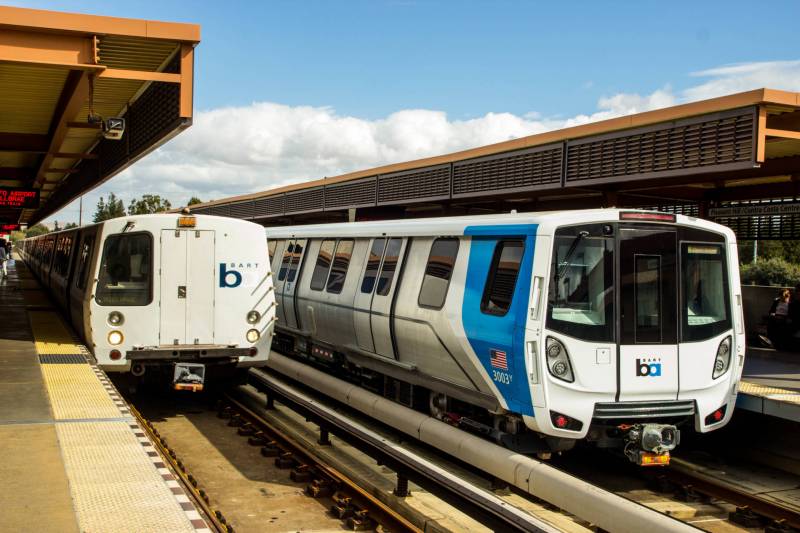BART’s much-anticipated “Fleet of the Future” may be stuck in the future a little longer.
The agency will “temporarily stop” accepting the new rail cars from manufacturer Bombardier on Jan 8, citing issues with the trains’ software and wheels, the agency said in a statement.
The new trains’ onboard automatic train control system causes them to “routinely stop while in service,” a system broadly considered safety-critical in the transportation industry. The trains won’t move again until an operator reboots the system, an agency spokesperson wrote in a statement. The cars’ wheels can also develop flat spots if a train is stopped in rainy or wet conditions, prompting the cars to be removed from service so that the wheels can be resurfaced.
“While neither issue impacts the safety of existing (Fleet of the Future) cars currently in service, they can impact service reliability and car availability,” they wrote.

